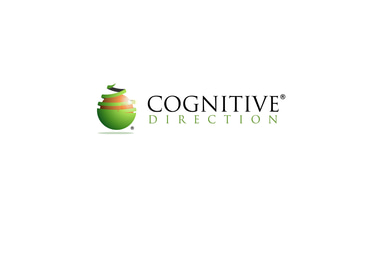Effective Stress Solutions for Workplace and Executive Stress Management
Explore evidence-based stress solutions for optimizing employee well-being and boosting performance with our award-winning UK and USA consultancy. Learn about the importance of social support and more.
Cognitive Direction
3 min read


Effective Stress Solutions for Executive Stress and Workplace Stress Management
In today's fast-paced corporate world, stress has become an all-too-common experience for workers across all industries. Job-related stress refers to the conditions within the workplace that pose a threat to employees, eliciting responses when work expectations and pressures surpass their capabilities. At Cognitive Direction, we understand the importance of effective stress solutions, particularly for executives facing high-pressure roles. Our award-winning UK and USA Corporate Well-Being and Employee Mental Health consultancy specializes in evidence-based organizational psychology, stress management, and burnout reduction to foster a thriving workplace culture.
Understanding Job-Related Stress
The Impact of Workplace Stress on Employee Performance
Job-related stress can significantly inhibit employee performance, regardless of the organization type. Tight deadlines, insufficient time off, low morale, excessive workloads, outdated technology, and poor organizational culture are all contributing factors. When workers face such pressures, it can lead to decreased productivity, higher absenteeism, and increased turnover rates.
The Importance of Social Support in Stress Management
Studies have shown that employees who receive maximum social support in their workplaces are more positive toward adopting workplace support as a stress management strategy. This support makes it easier for them to cope with work-related stress. Conversely, when workers lack support from superiors and colleagues, their output and performance can suffer heavily.
Effective Stress Solutions for Executives
Identifying Executive Stress
Executive stress is a unique form of workplace stress that affects individuals in high-level positions. The responsibilities of managing teams, making critical decisions, and meeting organizational goals can create immense pressure. Recognizing the signs of executive stress is the first step towards effective stress management.
Common Signs of Executive Stress:
Persistent feelings of overwhelm
Difficulty in making decisions
Increased irritability or mood swings
Physical symptoms such as headaches or fatigue
Difficulty sleeping or insomnia
Implementing Stress Management Strategies
At Cognitive Direction, we offer tailored stress management solutions designed to address the specific needs of executives. Our approach includes a combination of psychological research, resilience training, and personalized coaching to help executives manage stress effectively.
Key Stress Management Strategies:
Mindfulness and Relaxation Techniques: Incorporating mindfulness practices, such as meditation and deep breathing exercises, can help executives manage stress and maintain focus.
Time Management and Delegation: Effective time management and delegation of tasks can reduce the burden on executives, allowing them to focus on high-priority responsibilities.
Physical Activity and Wellness Programs: Encouraging regular physical activity and participation in wellness programs can improve overall well-being and reduce stress levels.
Professional Support and Coaching: Engaging in professional coaching and seeking support from mental health professionals can provide executives with the tools and strategies needed to cope with stress.
Creating a Supportive Organizational Culture
Building a Resilient Workplace
A supportive organizational culture is crucial for managing stress effectively. At Cognitive Direction, we help organizations develop a culture of resilience and support through customized well-being programs and workshops.
Steps to Building a Resilient Workplace:
Fostering Open Communication: Encourage open communication between employees and management to address stressors and find solutions collaboratively.
Providing Training and Development: Offer training programs focused on stress management, resilience, and mental health awareness.
Promoting Work-Life Balance: Implement policies that promote work-life balance, such as flexible working hours and remote work options.
Recognizing and Rewarding Efforts: Acknowledge and reward employees for their hard work and contributions to the organization.
The Role of Leadership in Stress Management
Leadership plays a pivotal role in creating a supportive and stress-free work environment. Leaders must set the tone for stress management by modeling healthy behaviors, providing support, and fostering a culture of empathy and understanding.
Conclusion
At Cognitive Direction, we are committed to providing effective stress solutions for executives and employees alike. Our evidence-based approaches to stress management, resilience training, and organizational culture development are designed to optimize employee well-being and enhance corporate performance. By addressing executive stress and creating a supportive workplace, organizations can ensure their employees thrive, leading to a more productive and harmonious work environment.
For more information on our services and how we can help your organization manage stress effectively, contact Cognitive Direction today.
9 Coldbath Sq
London
EC1R 5HL


Subscribe to our Corporate Well-Being and Wellness Newsletter
Contact Us
© 2025, Cognitive Direction | All Rights Reserved (UK & USA)
Cognitive Direction
'Best Corporate Well-being Consultancy 2020'
- UK Enterprise Awards 2020
UK | USA | EUROPE
400 West 43rd St
New York
NY 10036
75 Vine St
Seattle
WA 98121
1150 S Olive St
Los Angeles
CA 90015
